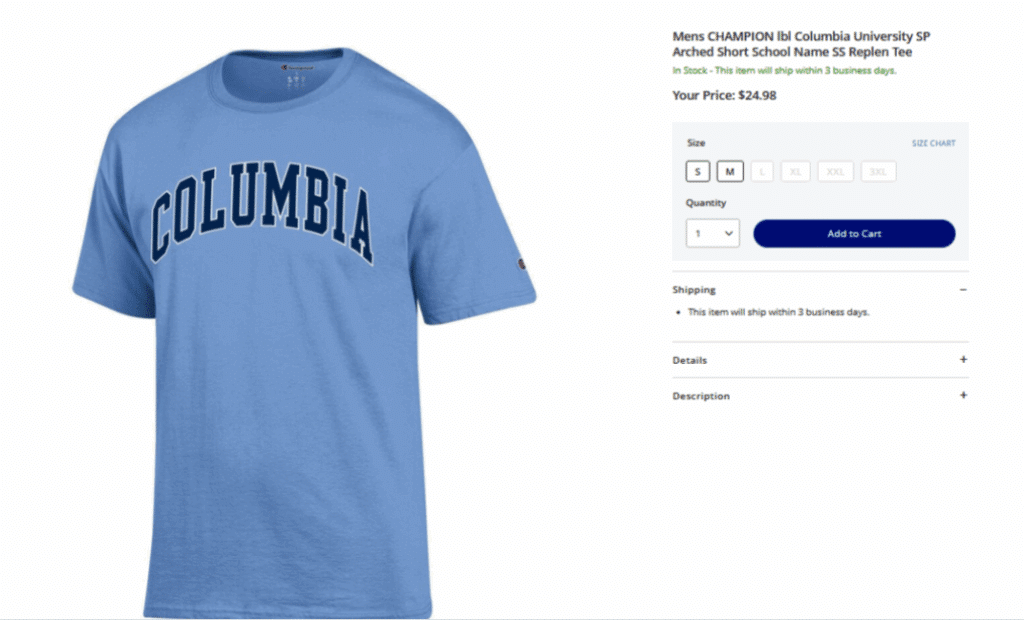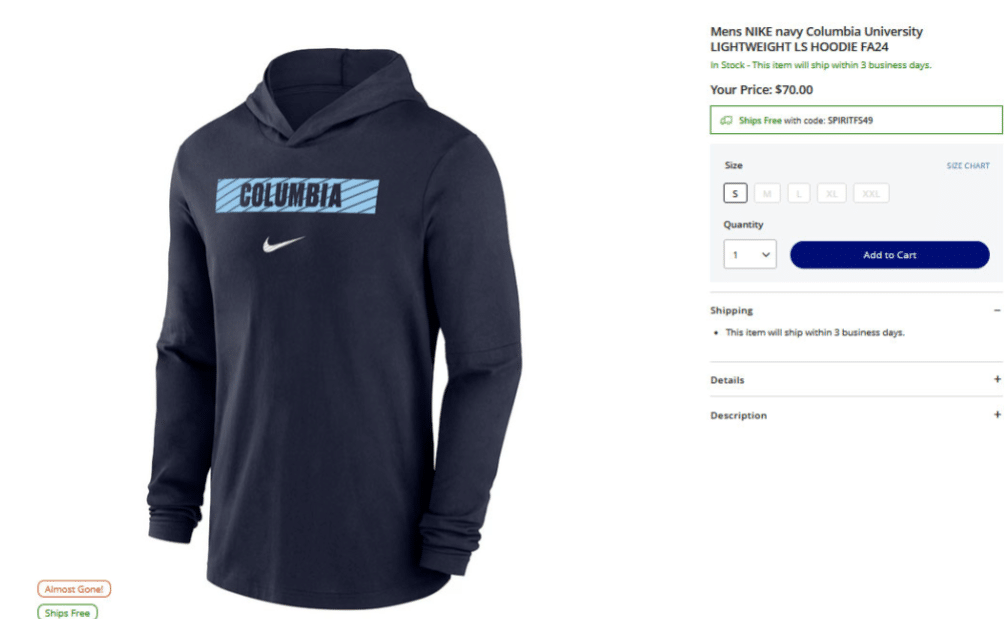Columbia Sportswear has sued Columbia University over alleged trademark infringement and breach of contract, claiming that the university’s branded merchandise looks “confusingly similar.”
- The Portland, Oregon-based retailer’s products are sold in the promo industry exclusively through S&S Activewear, PPAI 100’s No. 2 supplier.
In a lawsuit filed July 23 in the U.S. District Court for the District of Oregon, Columbia Sportswear alleges that Columbia University intentionally violated an agreement the parties signed in June 2023.
Under the agreement, the Ivy League school could feature “Columbia” – for which the apparel brand has a trademark – on its merch as long as the name was used with a recognizable school insignia, its mascot, the word “university,” the name of the academic department or the founding year of the university (1754) or a combination of the above.
RELATED: Trump Organization Sues Online Merchants Of ‘Counterfeit Products’
However, Columbia University has breached the agreement by offering multiple garments without any of the school logos through its online store, according to the lawsuit. Plus, those garments feature a bright blue color that’s almost identical to the blue color long associated with Columbia Sportswear, the suit claims.

“The likelihood of deception, confusion and mistake engendered by the university’s misappropriation and misuse of the ‘Columbia’ name is causing irreparable harm to the brand and goodwill symbolized by Columbia Sportswear’s registered mark ‘Columbia’ and the reputation for quality it embodies,” the lawsuit states.
Furthermore, the lawsuit shows examples of Columbia University apparel featuring Nike and Champion logos, which Columbia Sportswear argues can create a false association between the outerwear brand and its competitors.
“Though Columbia Sportswear and Nike are headquartered in the same state and are both highly reputable sporting apparel designers and have a generally friendly relationship, the two companies have never collaborated to jointly design, manufacture, market or sell any product,” the lawsuit says. “A consumer looking at the infringing merchandise would never know that, and, in fact, would reasonably be induced into believing the companies had.”

Founded in 1938, Columbia Sportswear, whose clothing is sold at more than 800 retail locations including more than 150 of its branded stores as well as its website and third-party marketplaces, is seeking to
- stop all sales of apparel that violate the agreement
- recall any products already sold
- donate any remaining merch to charity
- receive three times the amount of actual damages determined by a jury
Promo Perspective
A similar lawsuit was filed earlier this year when Stanley Black & Decker accused Pacific Market International, parent company of Stanley drinkware, of confusing consumers in the marketplace and damaging Stanley Black & Decker’s reputation in the process.
Protecting intellectual property is a major concern for the promo industry, which is fueled by creativity and innovation.
- Trademarks, copyrights and patents are designed to distinguish one’s products or services from another’s.
- Those protections enable customers to know what they can expect, ultimately building brand loyalty.
Although the need to protect IP isn’t called into play until someone infringes on it, suppliers, distributors, decorators and business service providers should keep an eye on the market to remain vigilant. For example, suppliers are urged to file a patent application before public disclosure.
ICYMI: L.L.Bean Drops Lawsuit Against 4imprint
“If you wait to file, you may waive your rights or limit the remedies,” said Justin Miller, Esq., a patent attorney with Larson & Larson, at the 2019 PPAI Product Responsibility Summit.
- In a landmark legal victory for the promo industry in 2018, a federal court jury ruled in favor of ETS Express after the supplier was sued for alleged trademark infringement by Can’t Live Without It, LLC, dba S’well Bottle.
Conversely, you don’t want to infringe upon someone else’s IP when creating or designing products. When accepting an order, distributors should avoid the obvious such as Disney, Star Wars, Marvel characters and the like, as well as famous landmarks, slogans, logos, likenesses of celebrities and photos and art of unknown origin.
RELATED: New Ruling Could Make Design Patents Harder To Obtain
“Fair use laws remain extremely gray, and companies incorporating copyrighted assets into their work should be aware that the case-by-case and context-sensitive evaluation lends itself to much subjective speculation about how a court of law, i.e., a judge or a panel of judges, may apply an objective analysis in determining whether a use of a copyrighted work is fair and thus non-infringing,” wrote Halliburton in a 2023 commentary on the Copyright Act’s ‘fair use’ doctrine.


